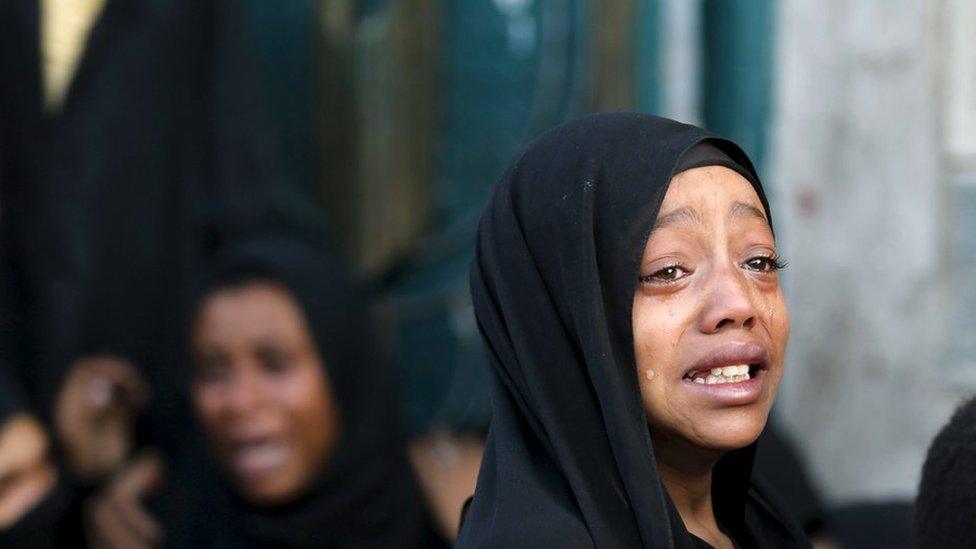The problem with Boris Johnson's Saudi comments
- Published
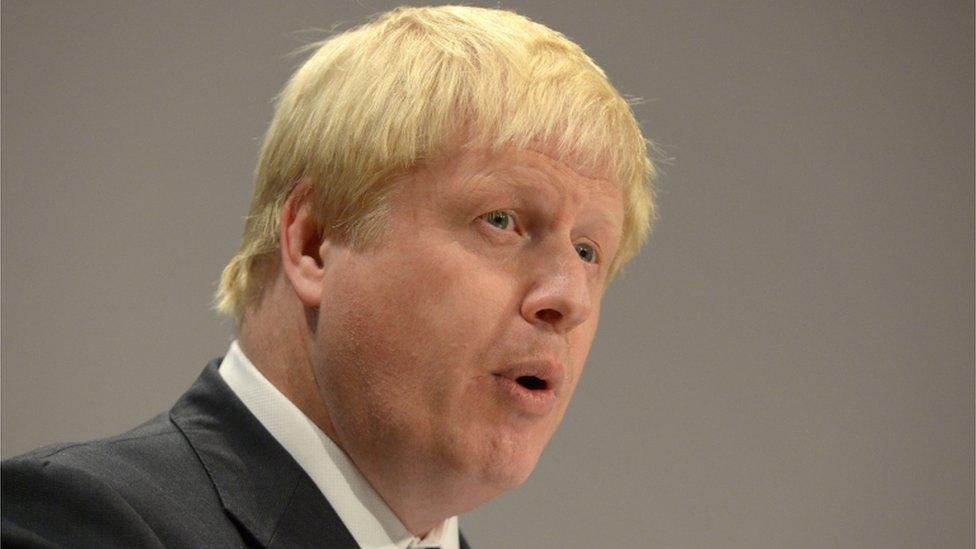
Mrs May's official spokeswoman came down on Mr Johnson like a tonne of black-edged Downing Street bricks
It is Boris Johnson's fate that even when he is right he is wrong.
Few would disagree with the foreign secretary when he says that Saudi Arabia and Iran are engaging in proxy wars in the Middle East.
Not everyone would use his language, accusing both countries of "puppeteering", but it is well known that both Riyadh and Tehran support opposing sides in several conflicts.
In Syria, the Saudis are providing arms to opposition rebels and Iran is supporting some of the many militias fighting alongside the Syrian army.
In Yemen, the Saudis lead a coalition of forces fighting the Houthi rebels who ousted the government and are being backed by Iran.
Across the region, the Sunni-Shia divide is one that sucks in outside nations like Saudi Arabia and Iran into a regional power play that many analysts fear could one day escalate.
Nor is the Foreign Secretary's wider analysis too controversial, that there is a lack of leadership and vision in the Middle East which creates conflicts and opportunities for outside powers to flex their muscles.
Behind closed doors
In foreign ministries across the world, for example, much thought is being given to how Iran may in the future want to use Hezbollah, the leading Lebanese Shia militia supporting President Assad's forces in Syria.
Where do they take their new-found experience and expertise in warfighting when the Syrian civil war subsides into an insurgency?
Nor is the foreign secretary saying anything that the Saudis have not heard before in private.
Foreign Office sources make clear that this is exactly what Mr Johnson has been telling his Saudi counterpart in their regular phone calls, the last of which was at the weekend.
Nor would Mr Johnson's predecessors, they say, have disagreed with much of his analysis, at least behind closed doors.
No, Mr Johnson's mistake was to say something in public that is normally said in private.
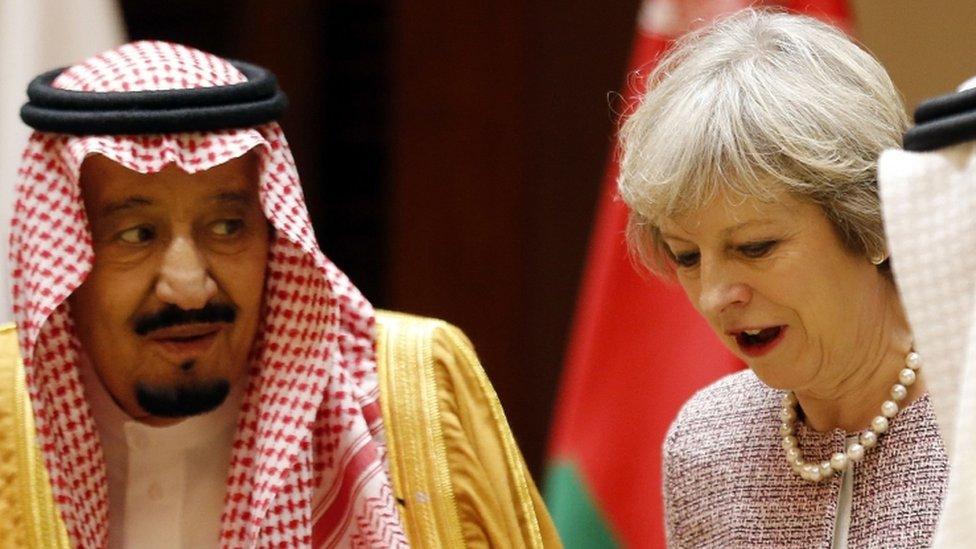
Saudi King Salman and UK Prime Minister Theresa May had dinner together on her trip this week
Officially, the British government does not regard the conflict in Yemen as a proxy war.
The UK sees it as a conflict of aggression by Houthi rebels that threatens the security of the Saudi people.
The Saudis are close allies; therefore the UK backs them in their campaign to protect their borders.
There is also a wider strategic interest in Yemen not becoming a failed state that ends up as a bolthole for al Qaeda and so-called Islamic State fighters.
But what has really stoked Downing Street's ire is the way Mr Johnson's faintly disobliging remarks about Saudi Arabia have undermined several days of hard work and diplomacy.
Errant jester
The prime minister has just come back from the Gulf where she has been promoting Britain's engagement with a part of the world whose trade will be hugely important after Brexit.
She has dined with the Saudi king, praised the kingdom for its reforms and given thanks for the vital intelligence the Saudi security services have provided Britain over the years.
And then Theresa May returned to hear her foreign secretary had dismissed the Saudis as "puppeteers" playing at "proxy wars".
It is little wonder that her official spokeswoman came down on Mr Johnson like a tonne of black-edged Downing Street bricks, saying that the foreign secretary was not expressing the government's position and he will have the opportunity to set out the correct government position when he visits Saudi Arabia at the weekend.
To his critics, Boris Johnson is this government's Shakespearean fool, an errant jester who wanders the globe telling jokes that insult as often as they amuse the Queen's allies.
But remember: the Bard often used his clowns to tell a wider truth, one that the players did not always want to hear.
The foreign secretary's problem is that truth is not always good diplomacy.
- Published8 December 2016
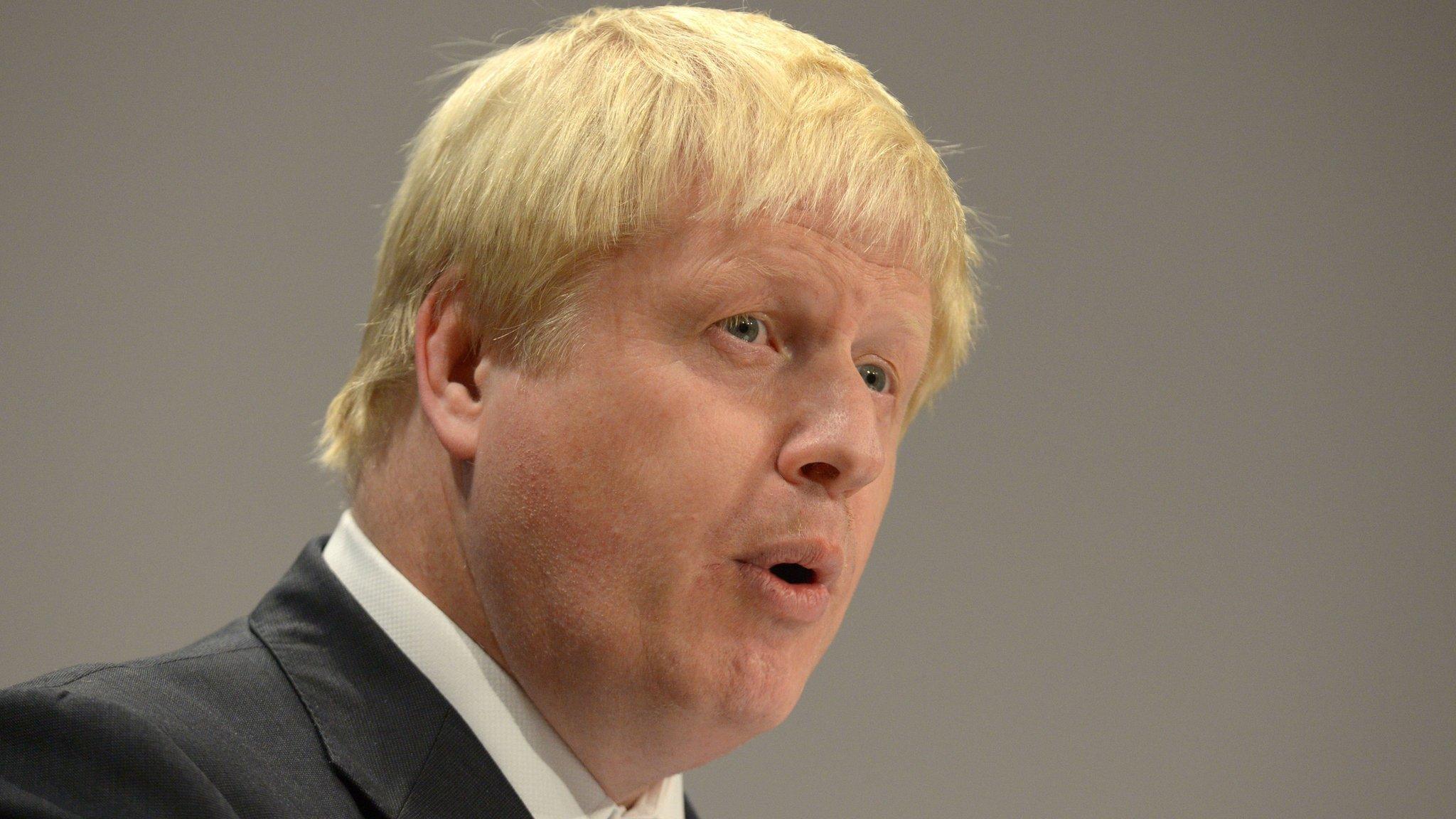
- Published7 December 2016
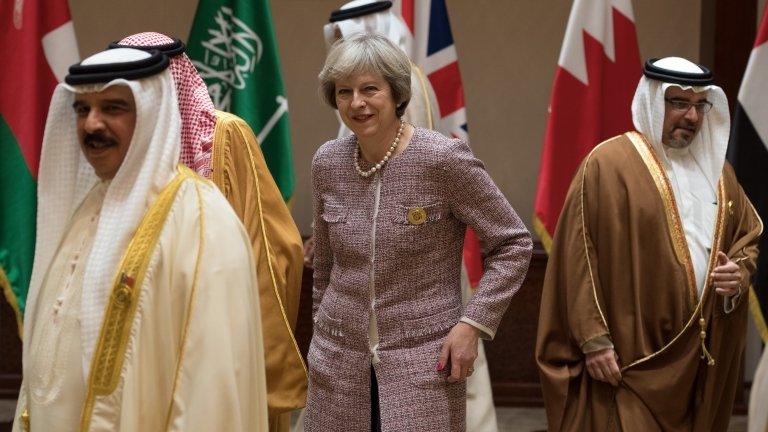
- Published29 August 2023
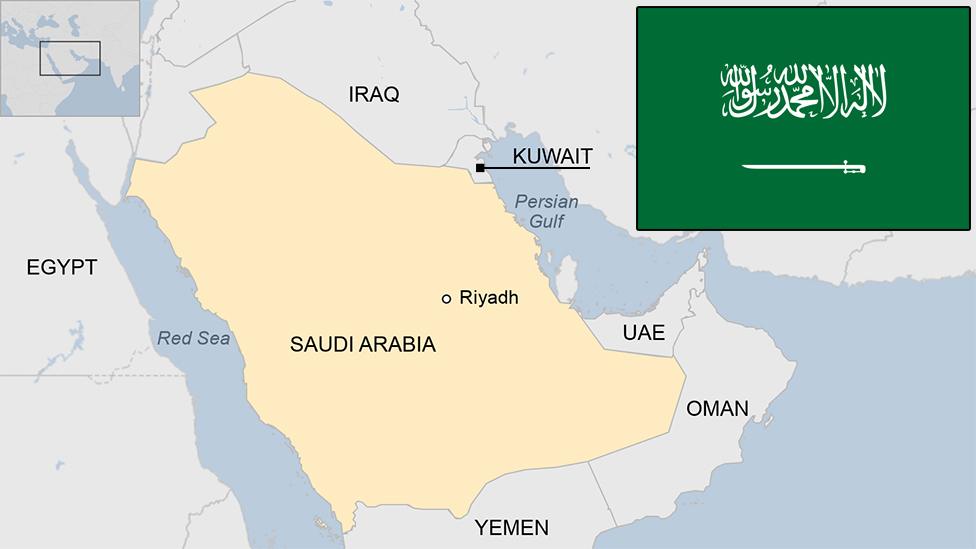
- Published28 March 2017
